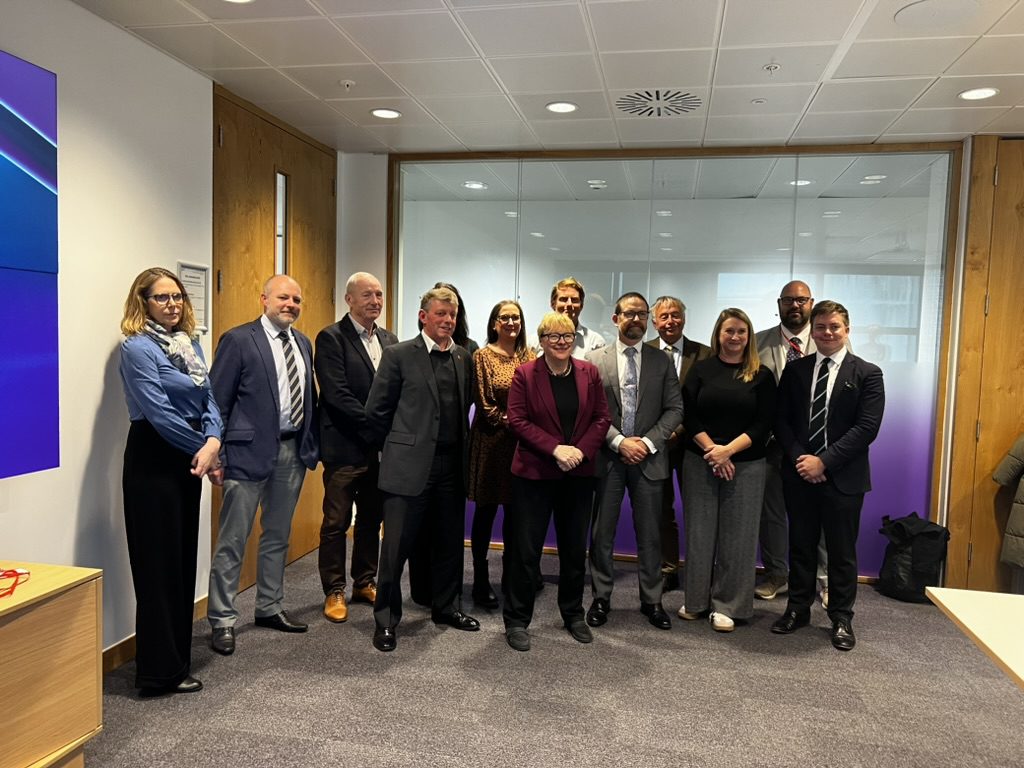The NFFO Executive met with newly appointed Food Security Minister Angela Eagle at DEFRA’s London offices this week, marking an important introduction at a pivotal moment for UK fishing.
Held just days before the 2026 end of year fisheries negotiations, the meeting set the tone for the months ahead and underlined the need for a pragmatic, evidence based approach to management and policy.
Representatives from across the NFFO membership, covering both inshore and offshore fleets around the entire English coast, presented the breadth of industry priorities and perspectives. NFFO CEO Mike Cohen opened by emphasising that this is a defining period for decisions on fishing opportunities, sustainable management and ensuring there are growth opportunities and a focus on national food security. Decisions made in this year’s annual negotiations will shape how the sector and government work together in the years ahead.
Balancing Science, Economics and Communities for 2026 fishing opportunities
Regarding the North Sea, both cod and mackerel were priority talking points and members warned that increasingly rigid ICES modelling leaves little room for practical judgement and management options, creating year to year volatility that undermines business confidence, investment and long-term food security. The NFFO called for a management approach that uses science wisely but not blindly. While the North Sea faces volatility in some key stocks, the South West is showing encouraging and ongoing recovery for pollack, spurdog and bass. Members called for alignment of pollack management with French recreational rules given the new ICES advice now incorporating recreational catches, which will speed up recovery for an important fishery, and more pragmatic bass measures to match the improving scientific outlook.
Working with eNGOs: Finding Solutions, Not Fighting Battles
The NFFO membership highlighted its growing record of constructive collaboration with eNGOs, in contrast to the noise of anti-fishing campaigns from the extreme end of the spectrum. Examples shared with the Minister included Clean Catch, which brings together science, industry and NGOs to develop practical bycatch solutions, and the Spurdog recovery, where partnership work successfully rebuilt a stock once under severe pressure. That same collaboration is now turning to new management scenarios in response to a growing population. These examples show that progress comes through partnership and pragmatism, not polarisation. Further thoughts were shared on how this should be applied to future management of marine protected areas and fisheries management plans.
Inshore Pressures and the Need for Joined Up Management
Inshore representatives set out the urgent need for better alignment between IFCA and MMO around parts of the coast, calling for a shared culture of consistency, transparency and practicality in management decisions. The message was clear: new fishing opportunities must be created and shared fairly to maximise benefits for coastal communities.
Inshore and non-sector reps also highlighted the intensifying spatial squeeze, as renewable energy development, MPAs and continued EU fleet access to 2038 leave limited space for domestic vessels to operate.
New Funding for fishermen
Looking ahead, the NFFO urged that the Fisheries and Coastal Growth Fund deliver tangible benefits at the quayside, supporting:
- Training and skills development
- Science partnerships
- Technological innovation
- Sector growth and resilience
A Constructive Start
The meeting set a positive and open tone between the NFFO and the new Minister. The Federation will continue to work closely with government as negotiations and domestic policy evolve, ensuring the voice of the fishing industry is heard clearly and constructively at every level.
Chris Ranford
NFFO Chair

